Al-Alsun Ain Shams organizes a cultural symposium entitled "Culture of Maintenance... Concepts and Principles"
The Community Service and Environmental Development Sector at the Faculty of Al-Alsun, Ain Shams University, organized a cultural symposium titled "Conservation Culture... Concepts and Principles", under the auspices of Prof. Dr. Mahmoud El-Metini, President of the University, Prof. Dr. Hisham Tamraz, Vice President for Community Service and Environmental Development, Prof. Dr. Salwa Rashad, Dean of the Faculty, and the supervision of Prof. Dr. Youmna Safwat, Vice Dean for Community Service and Environmental Development Affairs, hosted during its activities Prof. Dr. Hossam El Din Hassan El Brambly, former head of the Department of Architecture at the Faculty of Engineering, Professor of Maintenance and an international expert in maintenance and operation of buildings.
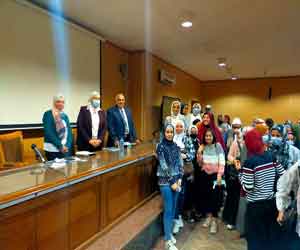 |
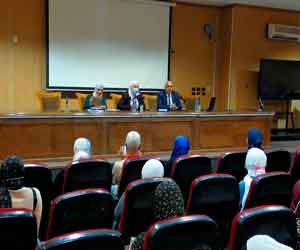 |
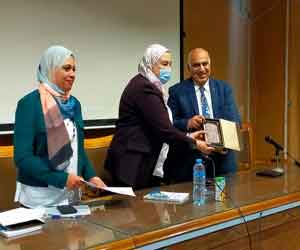 |
||
Prof. Dr. Salwa Rashad, Dean of the Faculty, opened the symposium activities, stressing that maintenance work for facilities in various walks of life comes as a proactive step for any development process, and is an integral part of infrastructure development, as securing maintenance procedures is adopted by any institution that seeks to develop its infrastructure before undertaking the development process itself. With the aim of preserving public and private property and handing it over to succeeding generations in good condition.
On her part, Prof. Dr. Youmna Safwat, Vice Dean for Community Service and Environmental Development Affairs, said that the Faculty administration adopts the principle of applying comprehensive maintenance to all its properties before proceeding to up-date its structure with the aim of enhancing the educational process, stressing that inculcating the values of maintenance and preservation of public properties must be possessed by university students before they go out to participate actively with their role in society.
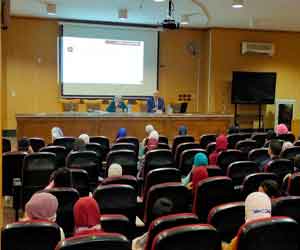 |
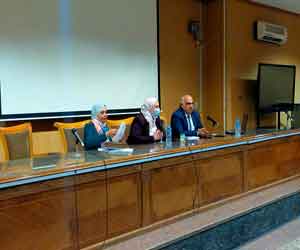 |
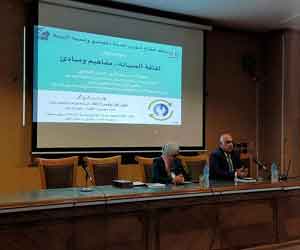 |
||
Prof. Dr. Hossam El-Din Hassan El-Barambaly, Head of the Egyptian Code for the Operation and Maintenance of Public and Heritage Buildings, referred to the concept of the word maintenance, its principles and its reflection on consumption in relation to the environment, as well as the preventive principles, which mean preserving buildings before they are damaged by developing their components and changing and updating the damaged periodically, such as drain pipes and electrical wires located in walls, inside buried pipes, or outside walls.
He stressed the need to develop simplified plans for the maintenance of facilities, follow up their implementation, and apply rationalization methods in maintenance operations, whether weekly, monthly or periodically, and how to reduce the cost of maintenance in a way that does not affect its quality.
He also referred to what is new in the field of maintenance, such as smart maintenance using environmentally friendly materials, which mainly aims to save energy and preserve the surrounding environment.
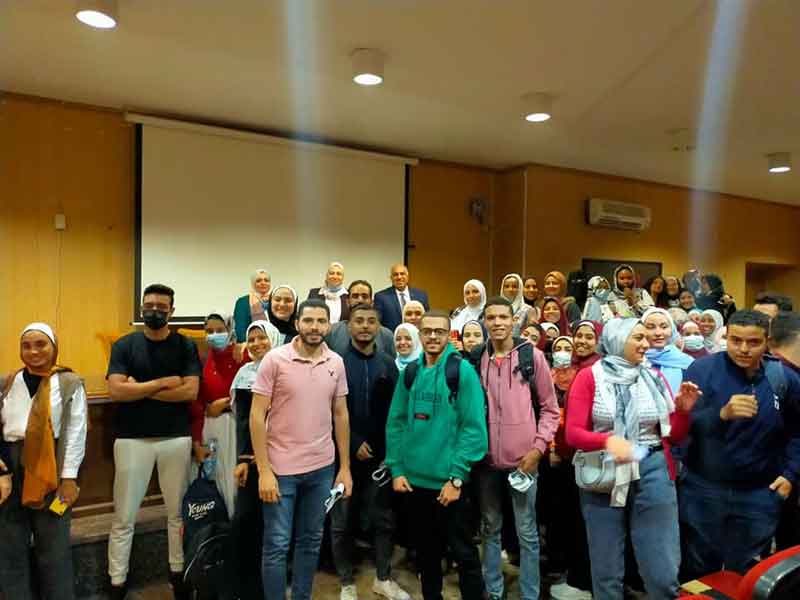 |
 |
||


.svg)



